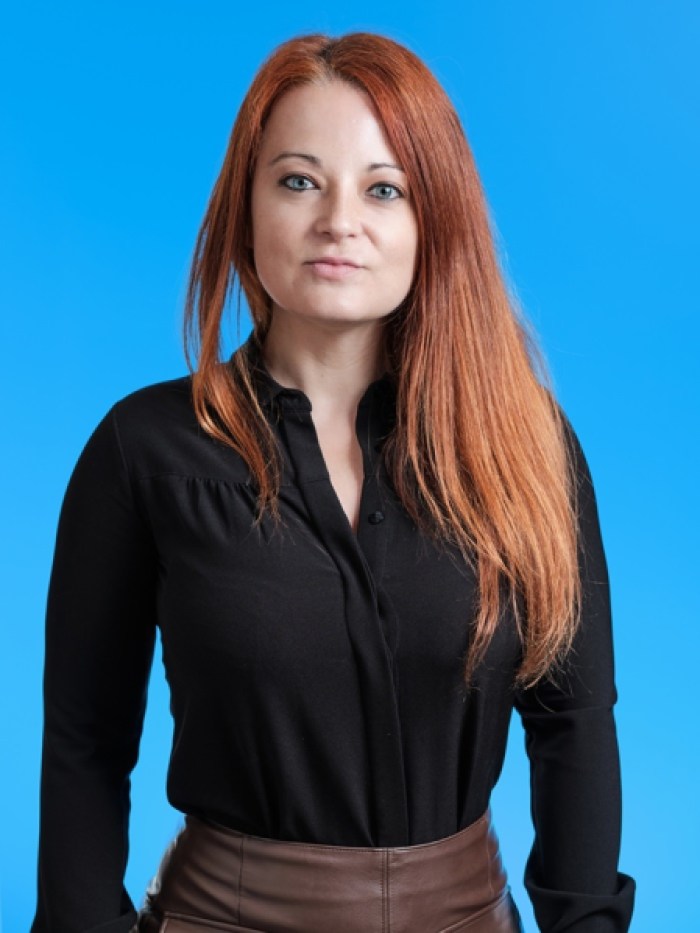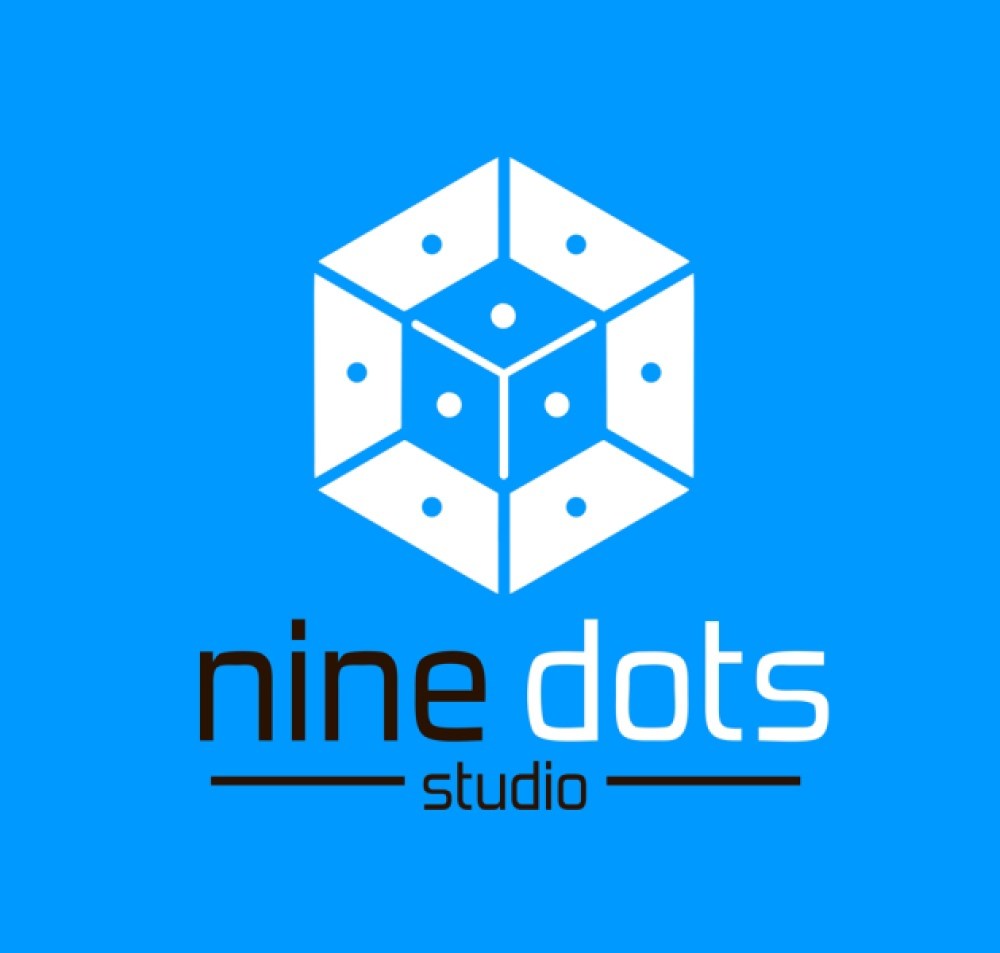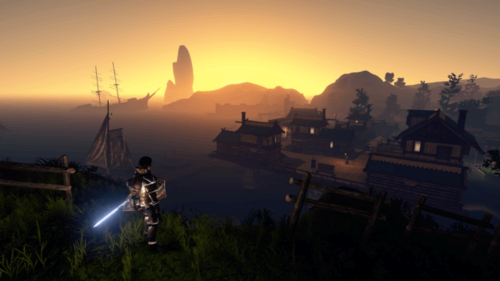Nine Dots is bucking the gloomy trend in gaming by expanding from its role as a developer to publishing third-party games as well.
Game publishers shut down by the dozens in 2023. But it’s refreshing to see Nine Dots go in the opposite direction in starting up a new third-party publisher.
Nine Dots has had a big success with Outward, an open world role-playing game that became a hit when it debuted in 2019. And now the company is embarking on a significant transformation in its business model.
While continuing its tradition of developing and publishing its own games, Nine Dots will work with other passionate game studios as a publisher, said Guillaume Boucher-Vidal, CEO of Nine Dots, in an interview with GamesBeat. This strategic collaboration aims to harness Nine Dots’ industry expertise and commitment to sustainable development across the indie gaming landscape.
GB Event
GamesBeat Summit Call for Speakers
We’re thrilled to open our call for speakers to our flagship event, GamesBeat Summit 2024 hosted in Los Angeles, where we will explore the theme of “Resilience and Adaption”.
“We’re trying to create value as much as possible with every dollar that we will be investing,” Boucher-Vidal said.
With other publishers pulling back, Boucher-Vidal feels like it’s the right time to compete with others.

“We are still very secure and we have cash flow from the sales of Outward,” he said.
In publishing, Boucher-Vidal intends to create a “very powerful brand” by targeting sophisticated gamers. He wants to grant those players a high level of self expression. He wants to give the maximum autonomy to players, rather than appear to be condescending by holding the player’s hand. And he wants to reward exploration by players, give them good music, and to go for mature gamers, mostly over 30.
“My previous experiences as a developer working with publishers made it clear that such relationships were much more painful and difficult than they needed to be,” Boucher-Vidal said. “I started Nine Dots to prove that we could make games in a way that was more respectful to developers and to the audience, without compromising on productivity or quality. Now, it’s a natural next step to extend this vision of respect from the position of a publisher. I believe in creating value, rather than extracting it. This mindset will guide our decisions in business just like it did in game development. That is a promise.”
Three core pillars

The foundation of Nine Dots Publishing rests on three core pillars:
Nine Dots aims for sustainabile development. It wants to establish friendly and fair partnerships with development studios, offering business terms far less aggressive than its competitors. Notably, royalties will flow to the development studio from the very first copy sold.
And the company believes in the Nine Dots signature. Games published by Nine Dots will cater to a specific group of demanding players, maintaining a recognizable signature through a selection of pre-defined concepts. The focus remains on the essence of the game itself.
It is also focused on ethical work practices. Prioritizing a healthy work-life balance, Nine Dots said it rejects the concept of “crunch time” in favor of well-being and long-term studio sustainability. This commitment includes realistic schedules, fair compensation, and employee support to ensure vibrant teams and lasting creative output.
Natasha Collin, Nine Dots COO and executive producer, said in a statement, “We’re not just publishing games; we’re helping amazing experiences to be shared with a greater audience. We partner with studios that share our vision, studios with unique voices and games that ignite passion. We’ll leverage our experience, network, and unwavering dedication to ethical practices to ensure their dreams reach the players they deserve, treating their production like ours in regards to care and investment.”
Avoiding crunch

Nine Dots has 28 people in Quebec City in Canada. Boucher-Vidal founded the company about 13 years ago.
“My intent back then was the same as it is today,” Boucher-Vidal said. “It’s a bit pretentious to admit that it was to sanitize how the game industry was doing things. I felt that the way it was managed was very wasteful. And it came from the perspective of when I was still trying to find my place in the industry as a game designer. And I saw a lot of people with talents that were quitting jobs that I personally wanted to have. And because it was just too taxing.”
Developers had to crunch, or work unpaid overtime, and they weren’t making the kind of games they wanted. Boucher-Vidal resolved to find ways to eliminate crunch. It didn’t make sense to make so many sacrifices to create games.
“I felt that this was happening because of the lack of maturity, in how we were doing business and how we were managing people,” he said. “When I started, I was just on my own. And I just started talking with people at social events for the gaming industry. And I realized that a lot of people agreed with me. Even more of them actually disagreed with me because it was implying that their sacrifices were not actually necessary, and it was hurting.”
He set out to prove that if you treat people the right way, you can do more with less. He focused on efficiency and leaving out things that were beyond the scope of what was possible. He pulled together a team of 10 people and they made Outward, the hit role-playing game. But there was a price to the no-crunch philosophy, as it made it hard to raise money.
They targeted the game at people who have been playing games for decades and didn’t need their hands held.
“They know enough about the medium and they want to enjoy their freedom and they don’t necessarily want to be asked every 30 minutes to buy microtransactions or subscribe to battle passes,” he said. “They want to play the game, have some freedom and enjoy what they bought.”
That became the formula for the kind of game that Nine Dots wants to publish. First, the company set itself up to publish its own games and now it is extending that to games made by external developers.
“We will have the kind of business terms that are more favorable and give the developers more leeway over what happens,” he said. “This is the opportunity to take the next step with that vision I had of sanitizing the industry, first as a developer and now as a publisher.”
In the company’s agreements, it stipulates that you cannot ask developers to work more than 52 hours per week. Much of the time, the company works about 37.5 hours per week, but sometimes there are deadlines such as creating a build for a trade show. About six months before a deadline, the companies can talk to each other about whether the deadline will be met or needs to change.
Accountable and efficient publishing

Nine Dots will still push for accountability as a publisher. The company has two games being built internally that the company will self-publish. And it has a third game from an external developer that has signed a deal. Nine Dots plans to invest $1 million to $2.5 million in projects.
Boucher-Vidal acknowledged that one deal ran into delays and the company could have decided to walk away from its publishing plans altogether. But he said he understood the risk and that such things can happen.
The company is building a marketing team to work with external developers.
Nine Dots will be agnostic in terms of genres, as it doesn’t want to saturate a market with the same type of game all of the time.
The company will work with devs who are making PC and console games, but not mobile, as that’s not the company’s expertise. Boucher-Vidal also said he had “zero interest” in working with blockchain games. Nine Dots will also stick to publishing in the West, which it knows better, in contrast to Asia.
“In most cases (with blockchain games), the goal is to extract value out of players rather than create value for them. Those models are not interesting,” he said.
Development discipline

As for the game economy and why people are getting layoff, Boucher-Vidal said, “It’s actually just proof that it’s a bit of a zero sum game. The people doing well are usually not those making the layoffs. I was talking about maturity and how we manage ourselves as an industry as well. And there was a very strong competition over acquiring talent by paying very high salaries.”
He said high salaries can be good for the people receiving them, but a company has to be sustainable, he said.
When it comes to high salaries, “you have to be careful what you wish for because it’s still a job and we still have to be adults and deliver results,” he said.
When it comes to developer-publisher splits, Boucher-Vidal said he is “kicking a hornet’s nest.” The split will be a 70-30 split, and developers will get paid from the first copy sold. By contrast, many deals are 50-50 splits and the developer winds up getting paid only after the publisher’s advance is paid off. That often results in developers not getting paid at all.
VentureBeat’s mission is to be a digital town square for technical decision-makers to gain knowledge about transformative enterprise technology and transact. Discover our Briefings.

